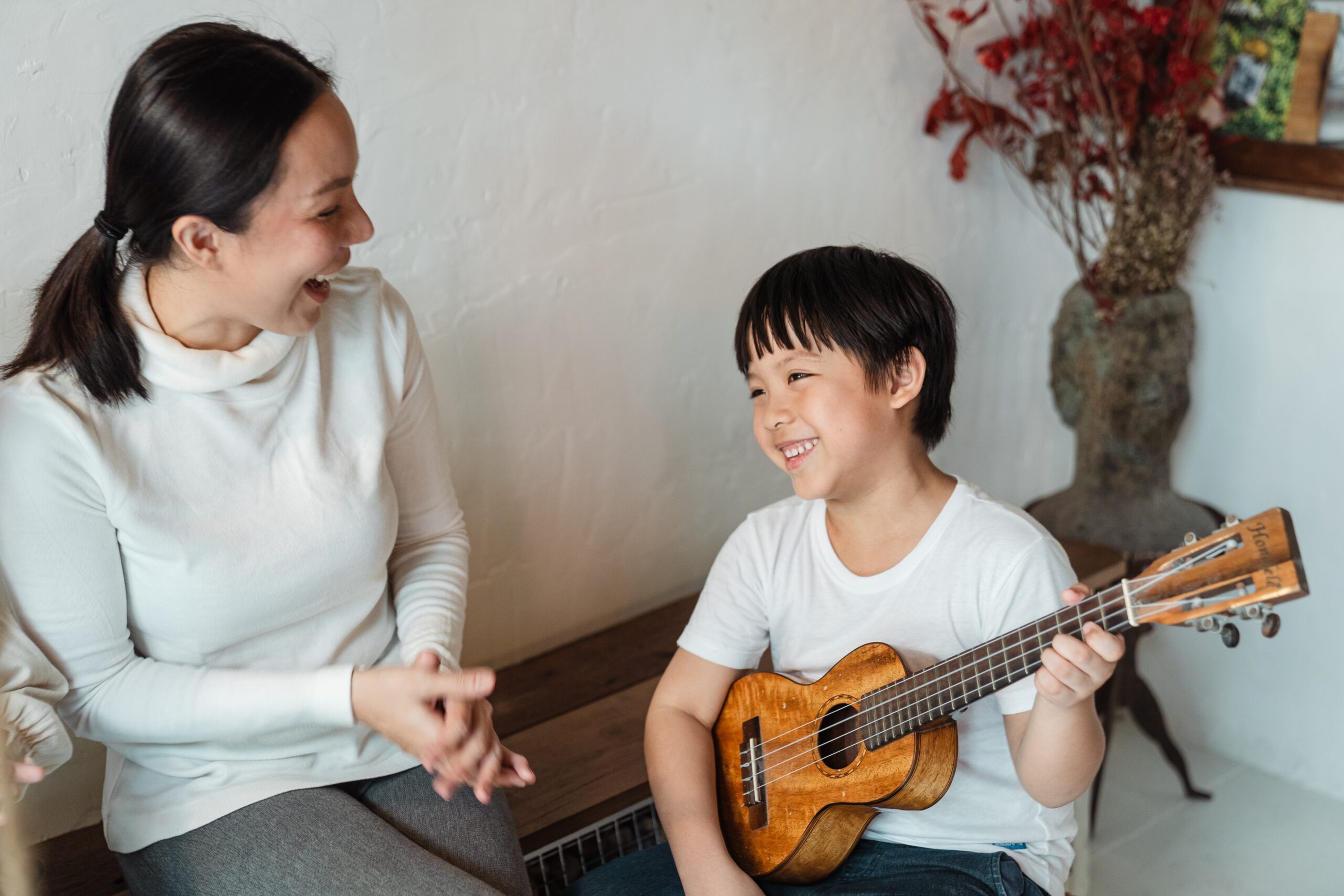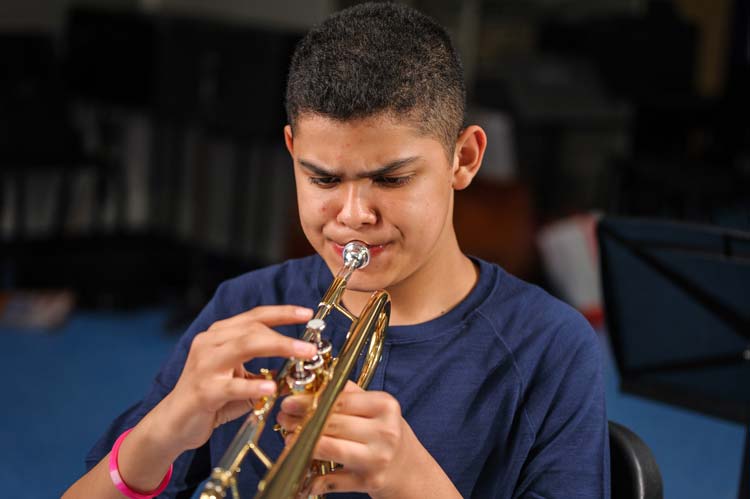August 07, 2020
How to Choose a Beginner Ukulele for Your Child


Finding the right beginner ukulele for your child can be difficult, especially if you’ve never purchased an instrument before. From understanding the different sizes of a ukulele to knowing a little bit more about the type of wood they’re manufactured from, this article will help guide you through the process and answer some questions you may have along the way. If you need a little extra help or have questions that aren’t answered in this article, head to your local Music & Arts store or contact our helpful customer service team today.
Ukulele Sizes
Before you move on types of wood and other key features of the ukulele, you should understand that ukuleles come in four different sizes: soprano, concert, tenor, and baritone. As you probably already guessed, the size of a ukulele has an impact on its sound. Smaller ukuleles, such as sopranos and concerts, produce higher-pitched sounds, while the tenor and baritone produce a lower sound that’s closer to that of a guitar. Ukuleles range in size from 20 inches (soprano) to 30 inches (baritone), with tenor being the most popular type of ukulele among professionals. Since most ukulele players choose the ukulele for its compact size, portability, and iconic ukulele sound, the baritone ukulele is the least popular among the bunch.


Price Range
A good price range for a beginner ukulele is between $50-$200- but you don’t have to spend that much. As a general rule of thumb, try to purchase the best ukulele you can comfortably afford. Although spending more than you can comfortably afford on a ukulele isn’t recommended, there’s something to be said on spending a little bit extra on a beginner ukulele. Since sound quality, comfort, and ease of play all impact a musician’s satisfaction with their instrument, doing your best to avoid very cheap or ill-sounding ukuleles is key. Plus the difference between a cheap, toy ukulele and a real instrument is usually only $20-$30. For the price of a week of lattes at Starbucks you could be giving your child a ukulele they’ll actually enjoy playing.
Ukulele Woods
If you’ve already started to shop around, you’ve probably realized that beginner ukuleles, and ukuleles in general, are manufactured from a variety of different woods. These range anywhere from monkeypod to mahogany. Here, we’ll touch on the most common types: koa, mahogany, and spruce. Since koa is a type of wood from Hawaii, most ukuleles manufactured in Hawaii use this type of wood. It is used on more expensive ukuleles, and produced a very warm sound. Most mid-range ukuleles are made from mahogany, which sounds a little softer than koa. Finally, most ukuleles are made from spruce. Since you’ll likely be buying an entry-level ukulele for your child, chances are that it’ll be made from spruce. As mentioned, these are just the most popular types of wood, and you’re sure to come across more while shopping.


Solid vs. Laminate Wood
As with flooring and furniture, ukuleles made with solid woods are more expensive than those manufactured from laminates, or several thin layers of wood glued together and sometimes topped with attractively grained veneers. If you’re looking to save a few bucks, keep an eye out for ukuleles manufactured from laminate. Though not as resonant as ukuleles manufactured from solid wood, those made of laminates tend to be stronger and less prone to splitting and cracking. Since they require less maintenance and care, they’re the preferred choice for many beginners. For those who seek something in the middle, many ukulele manufacturers produce ukuleles with laminate bodies and solid-wood tops.
Ukulele Accessories
Once you find and purchase a ukulele for your child, don’t forget to also pick up some essential accessories. An electronic tuner will make keeping their ukulele in tune easier for your child, while a case or gig bag will protect it during transport. After all, you just spent a good chunk of cash on a new ukulele, why wouldn’t you do your best to protect it from harm? Other essential accessories include a spare set of strings and a cleaning cloth so your child can wipe down their ukulele after each use. Finally, some ukulele players find that they enjoy playing with a pick, while others just use their fingers. Regardless of the accessory you need, Music & Arts is here to help.


Buy a Ukulele at Music & Arts
A ukulele can be an expensive purchase, which is why finding an affordable and durable ukulele is so important. That’s why many parents turn to Music & Arts. With over 130 stores across 23 states and over 50,000 products on our website, you’ll find one of the largest selections of gear, accessories, and instruments on our website. If you have questions about the specifications of a particular ukulele, contact us and we’ll be happy to answer any of your questions. With one of the largest product offerings in the world, we offer educator-approved band instruments and accessories, including a variety of ukuleles, from some of the most-trusted brands in the industry. Find a location near you.
Read more about the Ukulele






